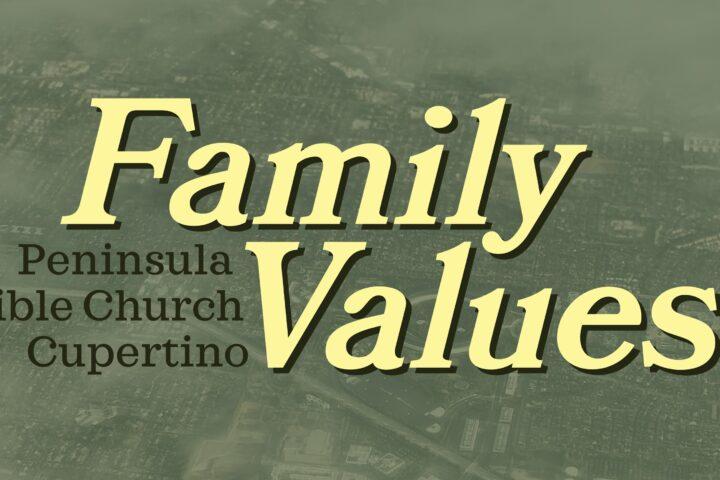Sermons on Acts
The Gospel For All Seasons
Rom 1:1, Acts 9:1-9
Becoming a Beloved
Acts 2:1-4
Ascension of the Beloved
Acts 1:6-11
Participation in God’s Work
We’ve spent four out of the first five Sundays of 2024 planting our feet in our PBCC Family Values, the commitments we believe in and hold ourselves to as followers of Jesus Christ. We have one more left to explore: “Participation in God’s Work”. Join us as we reflect on how participating in God’s work might just win us the favor of the world.
Life in the Spirit through Grace
On the day of Pentecost, the Apostles received the Holy Spirit and were empowered by Him to be Christ’s witnesses to the ends of the earth. The evidence of this empowerment was the miraculous gift of tongues: The Apostles began speaking in all kinds of languages. The manifestation of the Holy Spirit among those who believed the Apostles’ message was no less miraculous: They began to love one another. Join us as we continue our series on the PBCC Family Values and reflect on what it means to live in the Spirit through grace.
Discipleship through Relationships
When Fred Rogers of “Mister Rogers’ Neighborhood” fame accepted a lifetime achievement award in 1997, he used his time in the spotlight to redirect it onto the people in his life and in the lives of everyone in attendance who helped them become who they are. “All of us have special ones who have loved us into being,” Rogers said. “Would you just take along with me 10 seconds to think of the people who have helped you become who you are […]?” No person is an island — a universal truth, but one especially applicable when it comes to being a Christian. Join us as we resume our series on the PBCC Family Values with a reflection on our commitment to “Discipleship through Relationships”.
Devotion to the Word
Having planted our feet in our mission of “Knowing Jesus & Making Him Known”, we turn now to the primary way we receive this knowledge: Devotion to the Word. Many churches claim to be devoted to the Word of God — our own middle (ish) name is ‘Bible’ — but what does this look like in practice? How do we bring our whole selves in devotion to the Word of God? Join us for the second installment of our series on our PBCC Family Values!
Knowing Jesus & Making Him Known
Sunday, January 7, 2024 Music: Kevin Patao and TeamHost: Becca SingleyMessage: Eugene Kwon “Knowing Jesus & Making Him Known”Selected Texts from Acts 2:1-41 Announcements Every Sunday: Sunday AM Prayer Meeting 8:30amEvery Sunday: Body Life in Mandarin 10:30amEvery 2nd/4th Sunday: Church-Wide Prayer 7amEvery Wednesday: Intercessory Prayer 6:30am (Zoom)Jan 7th: Life Together: “What is the Gospel?” Second ServiceJan 26th-Jan 28th: Women’s Retreat Call to Worship: Psalm 9:1-2, 13:5-6 (NIV) 9:1 I will give thanks to you, LORD, with all my heart; I will tell of all your wonderful deeds.2 I will be glad and rejoice in you; I…
Anxious Hearts and Answered Prayers
Acts 12:1-24
Rome at Last: The End of the Beginning
Acts 28:1-31 This week we come to the conclusion of Dr. Luke’s two-volume work Luke/Acts. It has been a long, adventuresome journey, especially following Paul’s relentless energy and patient endurance, as he spread the gospel over 10,000 miles, visiting 29 cities, 8 provinces and 2 continents. With great skill, Luke has captured our imagination and held us in suspense through Paul’s countless trials and shipwrecks, wondering how will it all end. Will Paul make it to Rome? Will he get his day in court? Will Paul be vindicated or martyred? On the surface, Luke’s ending seems inconclusive, leaving our questions unanswered. But on closer examination, it fits his purposes perfectly, pulling us into the drama in ways we couldn’t have imagined. Acts 28:1-31
Shipwrecked!
Acts 27:1-44
Have you ever been in a situation when a family member, colleague, or company you worked for was at a potentially dangerous crossroads, and you had the foresight to know the right course of action, but your advice was not heeded and the result was a disaster? It’s even more painful when the consequences impact you and your loved ones, and you can’t do anything about it. That’s the situation Paul finds himself in as he begins his voyage from Caesarea to Rome and ends up shipwrecked. Like Paul, poor choices of others can plunge us into the dark depths beyond our control, making us feel like prisoners to complex social entanglements that put our calling and lives at risk. What do we do? Come Sunday to find out. (Note: Because of the length of the text, it will not be in the worship guide. I encourage everyone to read it before Sunday.)
When Justice is Delayed…Endlessly
Acts 24:1-27
In this week’s text we continue the theme of “Paul and politicians.” Last week we observed how a Roman tribune, who was governed by rules of law, was the instrument God used to rescue Paul from three riots and transport him safely to Caesarea. Having been escorted by half of the Roman garrison in Jerusalem must have encouraged Paul that God was confirming his promise that he would soon testify to God in Rome. But in Caesarea Paul’s hopes are dashed when his case is turned over to Felix, the Roman governor. Felix has no interest in being a servant to the people nor in justice. Rather than giving a ruling on Paul’s case, he vacillates, postpones, manipulates and finally puts his ruling on hold endlessly. What do followers of Jesus do when faced with corrupt officials and the justice due us is delayed with no end in sight?




